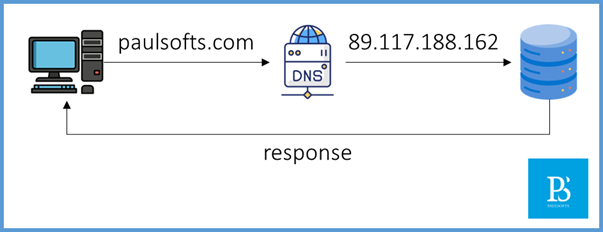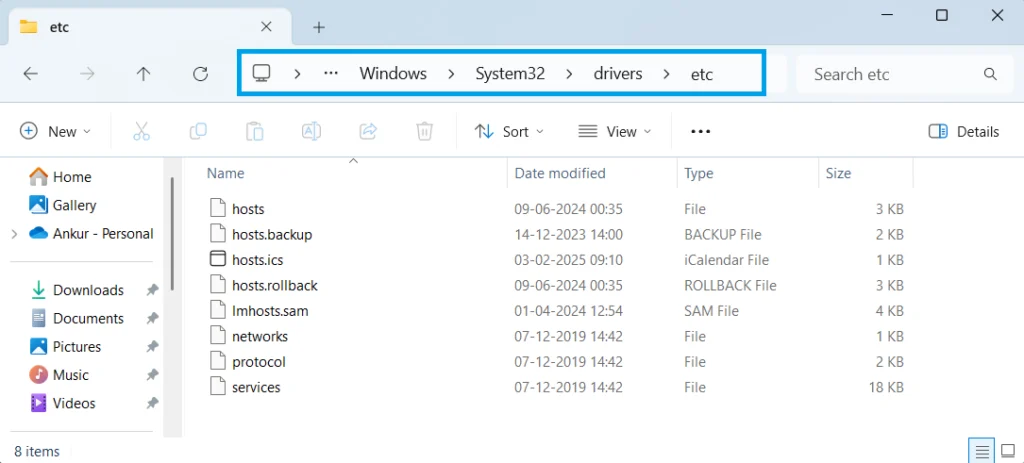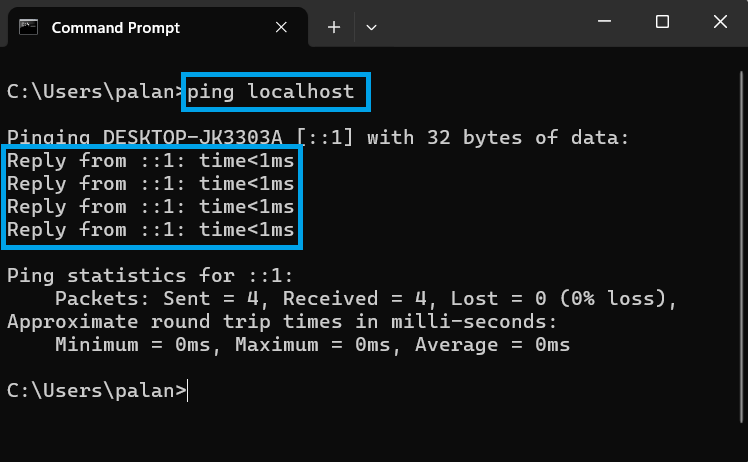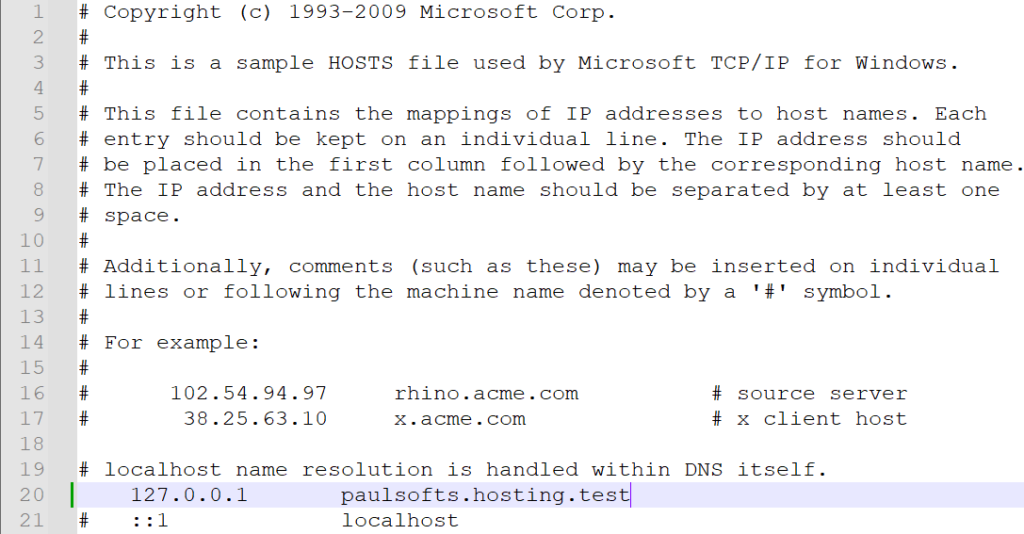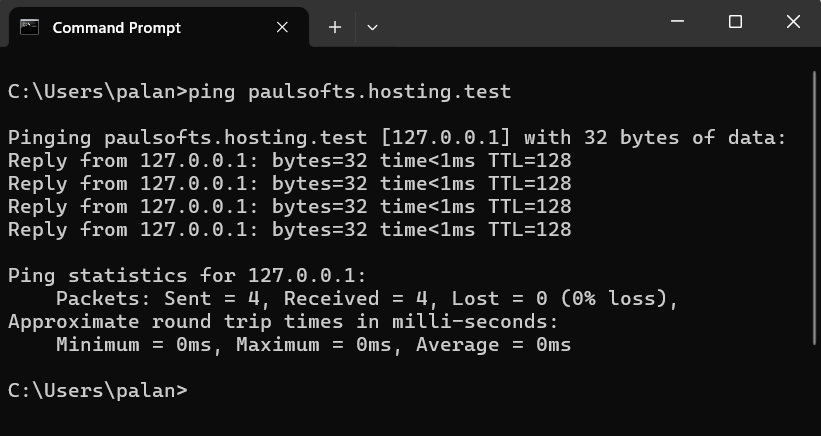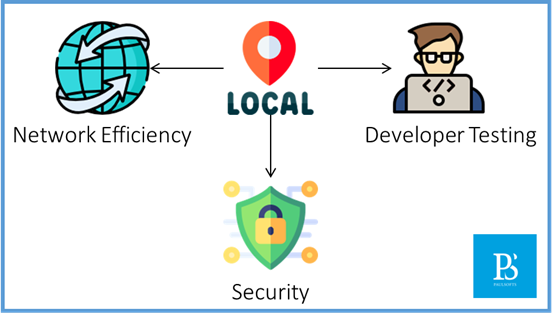In order to learn about localhost first, we need to understand how any request gets processed over the internet. Whenever we hit any URL in the browser, say paulsofts.com, the request goes to the DNS (Domain Name System) and the DNS server converts the domain name (here, paulsofts) into an IP address. This IP address further goes to the server (here, paulsoft’s server) and returns the response.
But, when in a browser we type localhost, it does not go to the DNS server, converting the domain name into IP address, all those things are skipped here. The computer system knows that the localhost means right here, the same local system itself.
What is a localhost or 127.0.0.1 meaning
The localhost is a reserved domain name that always points back to the same computer system in which it is requested. Every computer system has its own domain name, i.e., localhost. For example, if Riya on her desktop and Rahul on his laptop types localhost, they are actually talking to their own computer system.
The localhost is the domain name for the IP address 127.0.0.1. When you type localhost, your computer does not query an external DNS server; instead, it looks at its own host file located at C:\windows\System32\drivers\etc\hosts.
In this hosts file, you will find an entry as following:
127.0.0.1 localhost
::1 localhostIt simply means the localhost is mapped to 127.0.0.1 by the operating system itself. On other hand, the 127.0.0.1 is a pre-defined interface that directly references the loop back interface, it does not required any lookup as the system itself understand any request to 127.0.0.1 should not leave the machine.
What is Loopback Interface
The loopback interface is a virtual network interface that sends the data right back to the same device. The request to any IP within the range 127.0.0.1/8 (127.0.0.1, 127.0.0.2, 127.0.0.3….127.255.255.255) is reserved for loop back and all these ports points to your machine. In other words, we can say 127.0.0.1 is a hard-coded IP for your machine and localhost is the domain name mapped for this IP using the host file.
How to modify localhost file entries
If we ping localhost in command prompt, we will get the response from port 127.0.0.1 or ::1.
What if you want to change the domain name for your computer from localhost to something else for the IP address 127.0.0.1. You can easily do this by modifying the hosts file. Below, we have modified the domain name for localhost to paulsofts.hosting.test.
Now, instead of pinging localhost we can ping paulsofts.host.test and get the response.
What is the use of 127.0.0.1 localhost
- Localhost allows software developers to test applications locally before deployment. Developers can easily run a local server, test or debug APIs without needing an internet connection.
- It ensures safe testing of sensitive applications without external exposure. As, the localhost request does not leave the computer system.
- The localhost is really fast because of loopback interface, as the request is processed over the same system without any external routing.
What is the difference between IPv4 and IPv6
The main difference between IPv4 and IPv6 lies in their addressing schema.
- IPv4 localhost address: 127.0.0.1
- IPv6 localhost address: ::1 (which is shorthand for 0000:0000:0000:0000:0000:0000:0000:0001)
These both are the loopback addresses that is used to represent the local machine itself in a different IP protocols.
| Feature | IPv4 | IPv6 |
| Full Form | Internet Protocol Version 4 | Internet Protocol Version 6 |
| Address Format | 32 bit numeric address (e.g. 192.168.1.1) | 128 bit hexadecimal address (e.g. 2001.0db8::1) |
| Total Addresses | 2^32 | 2^128 |
| Address Shortage | Yes – exhausted | No – very large address space |
| Security | Optional (IPSec is manual) | Mandatory support for IPSec |
FAQs
Can we map multiple domain name to local IP address?
Yes, we have add multiple entries for 127.0.0.1 and those can be used as localhost. We just need to modify our hosts file. Example: 127.0.0.1 localhost localhostDemo localhostTest.
